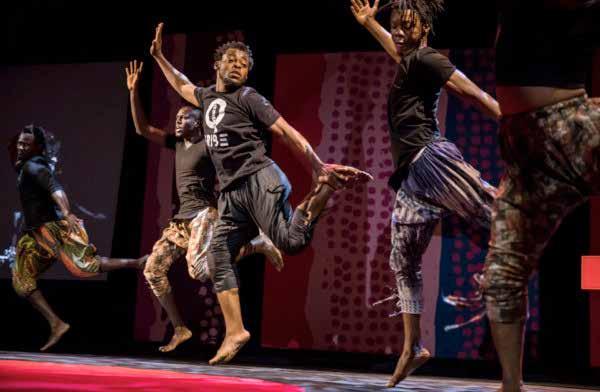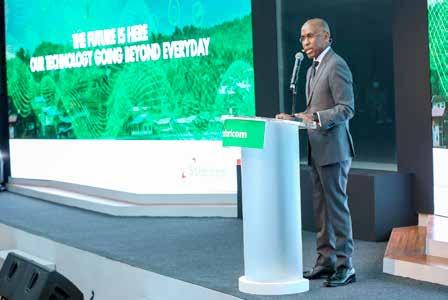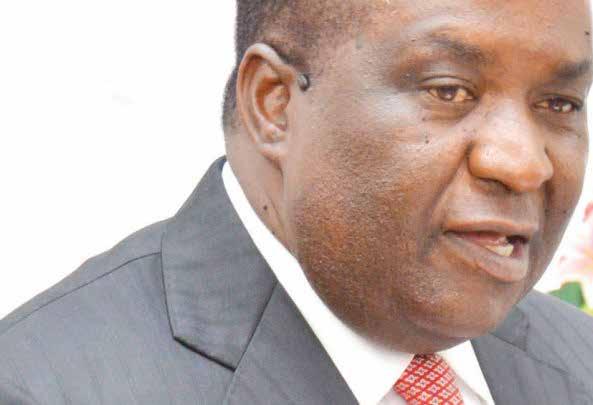
16 minute read
This one’s for you, “My little elegant Italian lady” by
As soon as she was done eating, she got up, put her serviette aside and slowly started walking away from the table. Noemi never stayed still, she was always on the move, I always wondered how many kilometres she managed a day inside the Alzheimer’s ward. She also ate fast, after all her meals are always mashed or mixed, and she has no teeth left either (smile). Noémie never said much. She could not. She is not only in her 80s but I reckon the disease robbed her of her ability to speak too. The reason I noticed her as soon as I started work at the hospital was her elegancy. Noémie may have memory loss, she probably does not remember her name, but she did not suffer from style loss. I later on found out she was of Italian origin, thereby my nickname for her, “My little elegant Italian lady”. Her trademark, has always a chic foulard (scarf) around her neck every day, it always matched her little classy ballerinas. Her colours were always perfectly matched, a little grey here, some yellow, a little light grey and some black. My very own Miss Prime and Proper. This particular day, a few days into the confinement, with my gloves and mask, covered to the nines, I noticed her leave her table, she was on the move again, but she had not cleaned her mouth. “Attendez Noémie, je vais vous nettoyer la bouche. Voilà, vous pourriez aller, vous êtes belle comme un cœur (Noémie wait, let me wipe your mouth clean. Voila, you are a pretty as a heart), I told her. She looked at me, smiled and said “Merci”. My heart flipped. Since January I have seen Noémie, I once fed her when she could not eat, and not once had she smiled or even said a word to me. That was the, a few days into the confinement. Today I worked the Alzheimer’s ward, and when it came to Noémie’s room, they had placed a warning sign on her door, no one was allowed in without the permission of the nurse. She was not to be fed, she could not eat. I stole a look in her room, I was fully protected mask, gloves and all, the order of the day now, Noémie was in bed, a machine her, another there, oxygen; a shadow of her old self, she did not move, she was so pale, jaws hallow, Noémie is has good as moved on into the other realm.
By Elizabeth Kameo
Advertisement
She will be the second resident on the Alzheimer’s ward to succumb to Corona virus. I cried, the Carer who was with me looked at me, she probably did not understand why I was crying for a woman I hardly knew, a woman I had only met at the hospital. But to me, Noémie and a few other patients on this ward have found a special corner in my heart. I have come to care for and love them, because after all they are just like you and me, only they are older and cannot remember what day it is, who they are or where they are. I call them Bisousnours (the French version of Care Bears) they are in their own world, some day it is filled with colours, and others, it is dark, grey and troubled. Noémie is the second, who will be the third, another of my favourites? A man? A woman? Will I cry again? Will there be any residents left at the hospital once this is all over? Will this be over? When? How? Shall we shake hand again; kiss again, hug again, live again? Will life get back to normal? When? But in the meantime, this one is for my little elegant Italian lady, NOEMIE!


While I was in a meeting with Uche on Saturday, she received a message from a mother whose son got admission into Stanford University, USA. This boy - still in his SS 3, and he’s yet to sit for his WAEC (this May 2021) - attended a 6-week program on coding in Onitsha. According to his mother, the boy, after learning how to code under Uche, continued developing himself and became indispensable to his school. What caught my attention was the school that offered him admission - Stanford University. Stanford University produced Larry Page (Google) and Chelsea (the only child of President Bill and Hillary Clinton). Such a school did not ask the boy for his O-level mathematics result or his grade in the English Language. They didn’t ask for 5 credits. They offered him admission based on his coding ability. Ironically, here in Nigeria, with A1 in Mathematics, Physics, Further Maths, and Technical Drawing, Universities will still reject you because you got a Pass in English. Our biggest challenge in this country may not be Boko Haram but the quality of people that will represent us in the future. People that are victims of the obsolete and epileptic educational system of this country. Victims of the system that are not comparing notes with the rest of the world and yet feels they are the best in the world. Secondary schools in Onitsha just recently stopped the teaching of Shorthand and still have a curriculum where
students learn the keyboard by drawing it on a plain sheet. Secondary Schools in this city still offer Business Studies with examination questions of ‘Who is a receptionist?’ I saw a JS 2 examination where students were asked to draw a CPU, a monitor, and a mouse. If it were a Fine Art examination, it would not be a problem but it was a Computer Study examination. Last month, I met Qudus Onikeku, an international African dancer. He shared his story of how he failed JAMB 4 times and later got admission in France to learn dancing. Dancing! He was admitted based on his displayed skills. Today, he’s touring over 15 cities on 3 continents with his dance documentary. In his words, he said that what we refer to as ‘Extra curriculum’ is what the world focuses on. But here in Nigeria, Emmanuella must pass English and
Maths before a poorly funded institution will admit her into Theater Arts. WizKid must have credit in Economics to learn Music. The world has changed but as Nigeria was in the beginning, we are still now. Two people cannot be mad at the same time. As the nation still enjoys the past, we should think beyond what the system can offer us. As you send your kids to Nigerian Schools, be observant to know what he is good and interested in. The world has left theories behind. Ability is now the new certificate. P.S Since I witnessed the Stanford testimony, I have been in a high spirit. I am excited that a simple office in Onitsha can bring out the best in a little boy. I hope Uchenna Onwuamaegbu Ugwu will share her side of the story with the world. This, to me, is not a mean feat but something to share with others. By Amaka Onitsha, Anambra State, Nigeria

Kenya becomes the second African country to roll out 5G
Credit to Associated Press
Mobile network operator Safaricom has launched a 5G network in Kenya, making it the second country in Africa to roll out the technology. The company has started the rollout in four towns, and expects to expand it to nine over the next year. Safaricom CEO Peter Ndegwa described the launch last month as “a major milestone for the country.” The telco is implementing the project using technology from the Finnish company Nokia and the Chinese company Huawei. MTN and Vodacom launched 5G in South Africa last year. Telecommunications companies in five other African countries- Gabon, Lesotho, Nigeria, Uganda, Egypt and Morocco are conducting internal trials for 5G, meaning it’s not yet available for public use. While the new development makes Kenyans early adopters of 5G in Africa, questions remain over investor and market readiness for mass use of the technology across the continent. As a result, widespread adoption of 5G in the region, while a promising prospect, may be far-off. 5G is the fifth generation technology standard for broadband cellular networks. It offers data speeds up to 100 times faster than 4G and lower latency (the delay an instruction for a data transfer and its actual transfer). It can also support up to 1 million connected devices per square kilometer, compared to up to 100,000 for 4G. Safaricom’s introduction of the technology in Kenya is “an important step in Africa’s 5G journey,” says Kenechi Okeleke, the lead author of a 2019 report on 5G in subSaharan Africa by GSMA, an organization representing mobile network operators worldwide. “This move will draw a lot of attention to the potential of 5G in the region and the benefits it can bring to society,” he tells Quartz. The initial focus will be on how 5G will enhance broadband connectivity for Safaricom, says Okeleke, director at GSMA’s research arm, GSMA Intelligence. However, he adds, given the company’s track record in tech innovation, many observers will be on the lookout for potential new use cases that Safaricom could develop for Africa’s unique challenges and customer needs. 5G’s faster speeds bring fiber optic-like connectivity to homes- a broadband connection that can reach speeds of up to 940 megabits per second. This would be a game changer for African businesses and schools that do not have access to fiber-optic internet, especially in
a post-Covid-19 world where activities including work, learning, and entertainment are increasingly happening online, Okeleke says. The technology could enable new and existing technologies such as artificial intelligence and the internet of things—the interconnection via the internet of computing devices embedded in everyday objects— to have a transformative impact on business processes, helping drive productivity and efficiency, Okeleke says. This has the potential to spark innovative solutions, particularly in extractive sectors such as mining and oil and gas, he adds, and help financial services and logistics sectors in the continent. Currently, only 3% of the world’s mobile phone connections are on 5G (Asia is in the lead, with 5% of mobile connections on 5G). But GSMA Intelligence estimates that by 2025, 5G will likely to cover a third of

the world’s population. It will take some time for Africa to catch up. Currently, around 51% of Africa’s mobile phone connections are on 3G, and GSMA Intelligence believes that it will remain dominant, with 5G connections making up only 3% of total mobile connections in Africa by 2025. South Africa’s 5G connections account for less than 1% currently. Despite the expected growth and excitement over the potential of 5G in Africa, there are concerns about investor and market readiness for the technology. The investment outlay for 5G is very high for mobile phone networks, Okeleke says. Phones that can connect to 5G are also very expensive for consumers; the average selling price for 5G phones in the US last year was $730. Uptake of 5G may also be slow, since 4G is enough to meet people’s data needs for day-to-day use. AI and VR, the strongest use cases for 5G because of the speed and lower latency it offer, aren’t yet common on the continent. Still, Okeleke expects the need for 5G will grow quickly. “As these things become more commonplace in the region, then we are likely to see that stronger demand for 5G services in a way that saw that strong demand for 2G services in the early 2000s,” Okeleke says. “And it is that demand for 5G services that will improve the economics of investments into 5G networks.” axi driver for as long as possible. “We love what we are doing and it’s really fun,” said founder Kobusingye, an occasional driver herself. “I can’t wait to partner with every woman out there that’s willing to be part of Diva Taxi.”

Malawi to destroy thousands of expired Covid vaccines - Minister
More than 16,000 doses of vaccine have reached their expiration date and will be destroyed in Malawi, after arriving in the southern African country three weeks later than expected according to the health minister. Of the 102,000 doses sent by the African Union (AU), some 16,400 were not used and expired according to Mr. Charles Mwansambo as he addressed the press. Of the total 530,000 doses received in the country via the Covax program, the Indian government, and the AU, all of which are AstraZeneca vaccine, 46% have been used so far, he said. “We have used most of the vaccines sent by the AU. When they expired, there were only 16,400 left that had not been used, which will now be destroyed and thrown away, to avoid any medical complications” he told the press. Since the first vaccinations in March, Malawi has only vaccinated 300,000 people out of the 11 million targeted, a target of some 60% of the population “to be sufficiently protected”, according to the minister. Chipiliro Chilinjala, 30 years old, met in a restaurant of the capital, drags his feet: “I take my time, many strange stories are circulating. I want to see the reactions of the first vaccinated people before I go”, he confided to the press. Sociologist Innocent Komwa confirms that the apathy to get vaccinated is likely due to the strength of conspiracy theories and misinformation: “In Malawi, we have a lot of adults who are stuck in the contemplative phase, who could use a little push to make up their minds,” he says. “Unfortunately, the government and health officials have not done much to counter the fake news, the rumors, especially
around AstraZeneca in Europe,” he laments to the press. The immunologist Gama Bandawe fears the impact of these delays when the pandemic will regain strength, probably in the middle of the year, he believes. “We’re expecting peaks in the next six to eight weeks. We’re going to be in a situation where we really could have used these vaccines.”

TOUGH ACTION: Malawi President fires Cabinet Minister over COVID Funds & 19 officials arrested
Malawi’s President Lazarus Chakwera has fired his labor minister and arrested 19 officials for fraudulent use of funds meant to fight the coronavirus in his country. The arrests came after an audit revealed Malawi officials used millions of dollars in funds

for their own expenses. Political analysts say the firing was a heavy punishment to deter other fraud within the system. Malawi’s Labor Minister Ken Kandodo is the highest level official that President Lazarus Chakwera fired for misusing coronavirus funds in a swift reaction to the report and his action is causing a chain of reactions in the country. According to a government audit, Kandodo used less than $800 from the COVID fund for allowances during an October trip to South Africa with President Chakwera. The President did not defend the action as he did not personally authorize such spending. In a televised national address to the nation on a Sunday evening last month, the president said the firing, and arrest of 19 other officials, was to show that no corruption would be tolerated in is government and he is ready to deal with any other person no matter how placed you are in government. “Even though the minister has since returned the money, his usage of the funds means that the money was unavailable for its intended purpose when it was needed most. And I cannot have in my Cabinet any individuals who either spend money budgeted for one thing on something else or do not ask tough questions to ensure that the money they are spending on something was budgeted for that purpose,” he said. Visibly angry, President Chakwera warned that anyone connected to fraudulent use of the $8 million fund would face serious consequences.
“So, I want all the thieves hiding in the civil service to mark my words: If the finger of evidence points to you as one of the thieves who stole COVID money for saving lives while hundreds of our people were dying of COVID, you are going to prison,” President Chakwera said. A Malawi police statement released on that same Sunday night said those arrested would face charges, including “theft by a public servant,” and could be
Sacked Labour Minister, Ken Kandodo

punished with hard labor if found guilty. Despite the small amount of money the Minister took and Kandodo’s refunding it, critics of corruption say his firing sends the right message. Blantyre International University political science lecturer, Sheriff Kaisi says it should help to deter official fraud which has been rampant in Malawi for a long time. “What has happened is commendable job that the president has begun. But to me it’s an indication of the huge task that befalls the president to accomplish what he has just started as far as this fight against corruption and malpractice on government resources is concerned,” he said. In February, Malawi’s president fired 28 heads of district councils for abuse of the $8 million COVID fund. According to reports, more investigation are ongoing and more people may be sacked or bring before the court of law for justice to be served in corrupt practices. In a satirical reaction to the President of Malawi’s video address which has gone viral on the social media, One Abdul Jimoh wrote on Facebook, Can Malawi borrow Nigeria is President for two years. In reaction another reader, Armstrong Okobia opined that two years is too short a time for the damaged done to Nigeria already but he should be lease to Nigeria for two decades. It is hoped that Nigeria President Buhari is watching his counterpart in Malawi on how best to wage war against corruption and indiscipline in government.

1,440 km crude oil pipeline will be constructed from Uganda’s Albertine region to Tanzanian seaport of Tanga after Uganda’s President Yoweri Museveni and his Tanzanian counterpart, President Samia Hassan Suluhu last month signed the East African Crude Oil Pipeline project agreement. “The EACOP Tripartite Project Agreement has been signed by all parties with commitment for realization of the Equal project; for the benefit of all people of Uganda and Tanzania in the spirit of East Africa,” said Sam Kuteesa, Uganda’s foreign minister. The agreement, signed in the Ugandan capital Kampala, paves the way for the construction of a 1,440 km crude oil pipeline from Uganda’s Albertine region to Tanzanian seaport of Tanga. Extraction will take place at two oil fields: the Kingfisher field, which is operated by China National Offshore Oil Corporation Ltd, and the Tilenga field, operated by Total S.A. Uganda last month suspended the signing of the agreement to mourn the death of then Tanzanian president John Pombe Magufuli. The $3.55 billion pipeline could be the longest electrically heated crude oil pipeline in the world. Once completed, more than 10,000 job opportunities will be created during execution, according to Suluhu. Environmental activists say the project poses risks to protected environments, water sources and wetlands in both the countries due to C02 emissions from the burning of oil through the pipeline.











